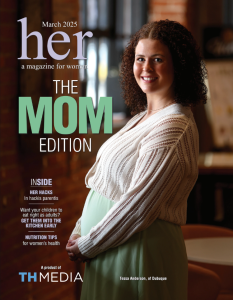This one goes out to all you lovebirds who got engaged during the holidays and now are left planning a wedding with zero event-planning experience.
Somehow you’re expected to craft a day that’s traditional, yet modern. Well-attended, yet intimate. It’s about you as a couple, but also shouldn’t be offensive to any of your guests. And most crucially, don’t overspend, but make sure it looks expensive.
Sure, weddings are fun, but the most important part of any wedding is everything that happens after — your real life, together. Don’t start that life with credit card debt that lasts until your fifth anniversary. If you focus your spending on what you and your guests will notice, and skip expensive things no one really cares about, you’ll have a beautiful wedding without the debt.
Establish your budget
Before you plan anything, set a budget based on what you (and your families, if they’re contributing) can afford. Make every decision with that number in mind, whether it’s $250, $5,000 or $50,000.
At its core, a wedding is simply “a celebration of love,” says Jen Glantz, founder of the company Bridesmaid for Hire and an email newsletter called The First Years of Marriage. “In that celebration, there are no rules. Look at your wedding as a blank slate, an empty room. What do you want to fill it with? What can you afford to fill it with?”
Re-evaluate ‘must-haves’
“This is the biggest thing I have to tell everybody when they plan a wedding: You don’t need anything at your wedding to get married,” Glantz says. “If you don’t want a cake, don’t have a cake. If you don’t want to wear a dress or a tuxedo, don’t.”
Here are some other ways to save:
Decor: Guests remember the overall vibe, not the tiny details. “People at weddings are busy,” Glantz says. “And when you’re busy, you don’t see things.” Save on decor by renting it or scouring Buy Nothing groups on social media. Already-married friends might have leftover items they would be happy to lend or pass along. There even are services where you can share flowers with another couple getting married the same week.
Transportation: “We’re locked into this idea that the big stretch limo will get you to the church or get you to the venue,” says Sheavonne Harris, owner and lead coordinator at Events by Sheavonne in New York City. But your guests will be seated inside when you arrive, so that car won’t be a part of your grand entrance. Car services also require you to book for a minimum number of hours, according to Harris, so you’ll end up paying for time you don’t use. She recommends booking a ride-hailing service — yes, just like when you need a ride to the airport.
Invitations, programs and menus: All those paper items you painstakingly select are going to go in the trash. Programs get left on chairs after the ceremony, and menus get tucked under plates after a quick scan. Even your invitations will get only a few months on guests’ refrigerators before they head to the landfill. “They just tossed a $10 bill into the garbage,” Harris says. If you want the tradition of paper for a lower cost, skip the menus and programs. You also can find gorgeous paper invitations at certain online retailers for a fraction of the price. Many of these printing companies offer seasonal sales, too.
Party favors: Please, let 2022 be the year we cancel party favors. Guests leave them behind, and you’ll be stuck with 75 personalized beer koozies for the rest of your life.
Spend on what gets noticed
Photography: Long after your wedding, the only things you’ll be left with are memories and pictures. This is not the task to assign to that cousin who took a few photography classes in college. “If you want to put money into something, put it into photography,” Harris says. “With photography, you definitely get what you pay for.”
The guest experience: Both Glantz and Harris recommend paying attention to weddings you attend as a guest before your own big day. What made you feel welcome? Guests won’t remember that you got married in a picturesque historic mansion, but they will remember if that mansion had only one bathroom with a 20-minute line to use it. Cut expenses elsewhere to focus on food, drink, entertainment and guest comfort.
Professional vendors: Hiring a friend or doing a task yourself might feel like a money-saving move. Harris cautions that unlike a professional vendor, your friend likely won’t have a backup plan for when the flower order is late or the sound equipment is on the fritz. And booking a pro at the last minute because that friend backs out will end up costing you even more.
Use rewards credit cards
Many self-employed vendors don’t accept credit cards, but whenever possible, pay for wedding costs with a rewards credit card. Not only can you earn cash back or travel rewards (hello, discounted honeymoon!), but should a vendor not honor its commitment to you, you can dispute charges.
Sara Rathner writes for Nerd Wallet.


















